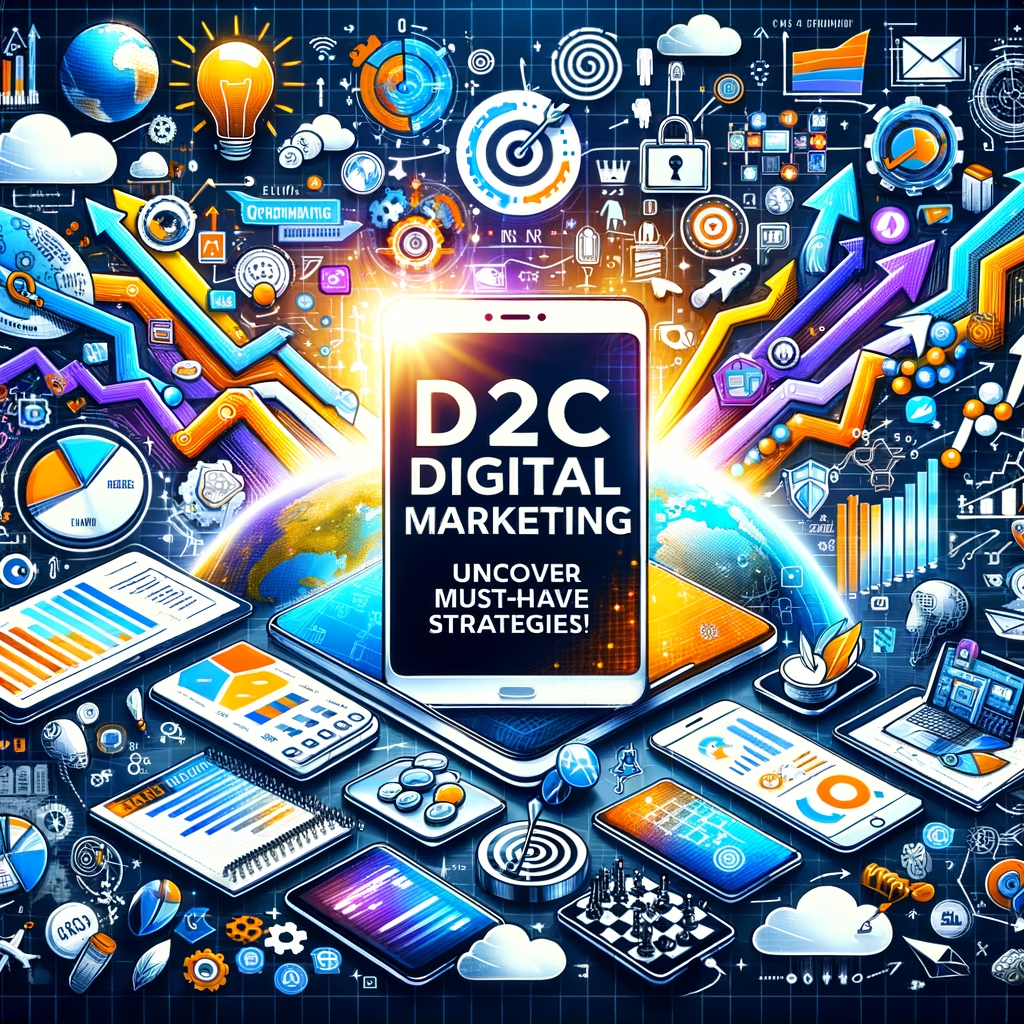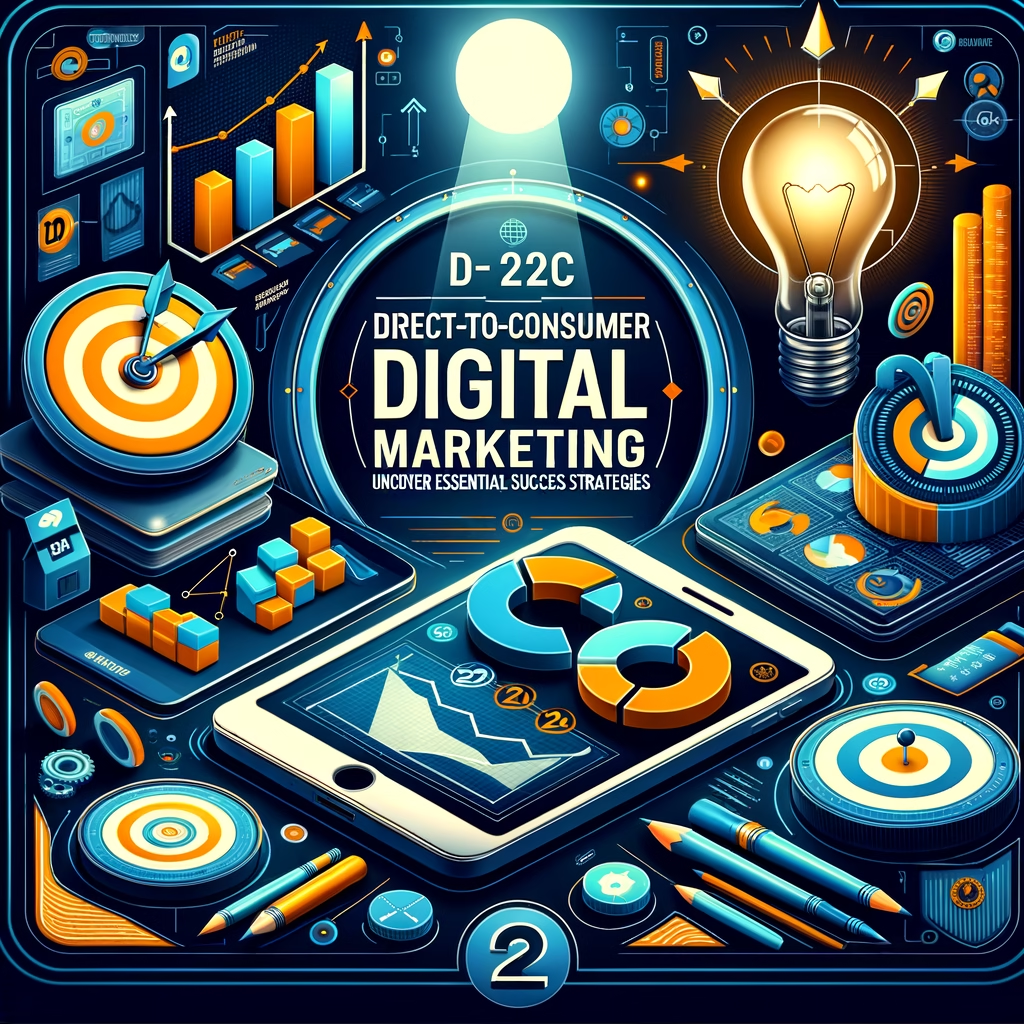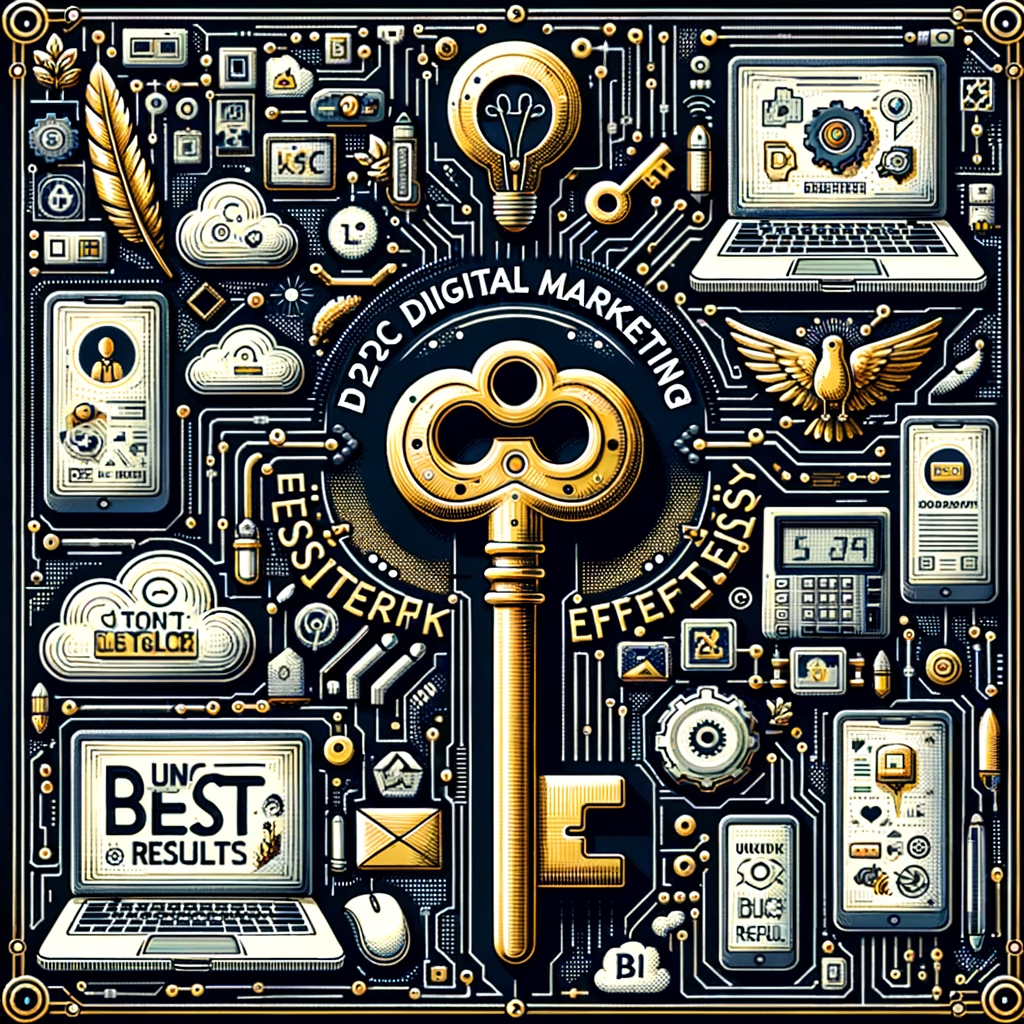- The Power of Personalization in D2C Marketing
- Understanding Personalization in D2C
- The Role of Data in Personalization
- Implementing Personalization Strategies
- Benefits of Personalization in D2C Marketing
- Tools for Personalization
- Case Study: Success with Personalization
- Overcoming Challenges in Personalization
- Building the Future of D2C Marketing
D2C Digital Marketing: Uncover Must-Have Strategies
The Power of Personalization in D2C Marketing

In the ever-evolving landscape of D2C digital marketing, the power of personalization stands out as a pivotal strategy for engaging modern consumers. Personalization refers to tailoring the shopping experience to meet the individual needs and preferences of customers. By utilizing data and advanced analytics, brands can create meaningful interactions that resonate deeply with their audience, fostering loyalty and driving sales.
Understanding Personalization in D2C
Personalization is not a new concept, but its implementation in D2C marketing has reached new heights thanks to advancements in technology. Unlike traditional retail, where interactions are often limited and generalized, D2C brands have the opportunity to gather detailed insights directly from their customers. This data allows them to craft a shopping experience that feels unique to each consumer, encouraging deeper connections.
The direct access to consumer data in D2C channels empowers brands to refine their marketing strategies continuously. Whether through email marketing, social media engagement, or personalized landing pages, the aim is to meet consumers where they are and provide what they truly want.
The Role of Data in Personalization
Data plays a critical role in personalization efforts. Without the insights gleaned from various consumer touchpoints, creating a personalized experience would be impossible. D2C brands collect data from customer interactions on websites, social media, and email campaigns, among other sources.
This data can include browsing history, past purchases, demographic information, and even social media interactions. By analyzing this information, brands can develop a comprehensive understanding of individual customer profiles and preferences.
Implementing Personalization Strategies
Implementing personalization in D2C marketing requires a strategic approach. Here are some key strategies to consider:
1. Dynamic Content: Utilize dynamic content in your email campaigns and website to tailor product recommendations and offers based on customer behavior and history.
2. Segmented Marketing: Break down your audience into smaller, more targeted segments. This allows you to deliver content and offers that align with the specific needs of each group.
3. Personalized Emails: Send personalized emails that address customers by name and recommend products based on their purchase history or browsing behavior.
4. Interactive Experiences: Incorporate quizzes or surveys on your website to better understand customer preferences. Use the results to guide them towards products they’ll likely enjoy.
5. Customized Landing Pages: Direct consumers to landing pages designed specifically for them, showcasing products and deals relevant to their interests.
6. AI and Machine Learning: Employ AI-driven tools to analyze data and predict customer behavior, enabling even more precise personalization.
Benefits of Personalization in D2C Marketing
The benefits of personalization in D2C digital marketing are substantial. By providing customers with a tailored experience, brands can:
– Increase Engagement: Personalized content is more engaging and keeps customers on your site longer, increasing the likelihood of conversion.
– Boost Conversion Rates: Personalized recommendations significantly boost conversion rates by showing customers products they are more likely to buy.
– Enhance Customer Loyalty: When customers feel understood and valued, they are more likely to return. Personalization encourages repeat purchases and builds brand loyalty.
– Improve Customer Experience: A seamless and personalized shopping experience leads to higher customer satisfaction and fewer returns.
Tools for Personalization
Several tools can assist D2C brands in executing their personalization strategies effectively. Here are a few popular ones:
– HubSpot: Known for its robust marketing capabilities, HubSpot offers a suite of tools for personalized email marketing, CRM, and content management.
– Segment: This tool helps collect and utilize customer data across various platforms, making it easier to segment audiences and personalize interactions.
– Dynamic Yield: This platform offers AI-powered personalization and product recommendations, helping brands deliver tailored experiences at scale.
– Salesforce: With its vast ecosystem, Salesforce provides extensive personalization features ranging from customer journey mapping to personalized outreach.
Case Study: Success with Personalization
Consider the case of Dollar Shave Club, a D2C brand that revolutionized the grooming industry with its personalized subscription model. By using data from customer interactions, they created tailored recommendations for grooming products, enhancing customer satisfaction. Their humor-infused, personalized email marketing campaigns further cemented their brand loyalty, reflected in their continued success and expansion.
Overcoming Challenges in Personalization
While personalization offers many opportunities, it also presents challenges:
1. Data Privacy Concerns: Consumers are increasingly concerned about data privacy. D2C brands must ensure compliance with regulations like GDPR and maintain transparent practices to build trust.
2. Integration Across Platforms: Seamlessly integrating personalization efforts across various platforms can be complex. It requires a unified approach to data management and marketing.
3. Resource Intensity: Developing and maintaining personalized experiences can be resource-intensive. Brands need robust tools and team members skilled in data analytics and customer relationship management.
4. Keeping Pace with Change: Technology and consumer preferences evolve rapidly. Staying adaptable and continuously updating personalization strategies is crucial for long-term success.
Building the Future of D2C Marketing
As technology advances, the scope and scale of personalization in D2C marketing will only increase. Brands that embrace this strategy will likely see improved customer experiences, stronger relationships, and enhanced business outcomes.
Ultimately, personalization in D2C digital marketing is about more than just selling products—it’s about connecting with consumers on a personal level, building trust, and creating a community around your brand. By employing advanced data analytics and strategic thinking, D2C brands can turn personalization from a marketing tactic into a core component of their success strategy.



